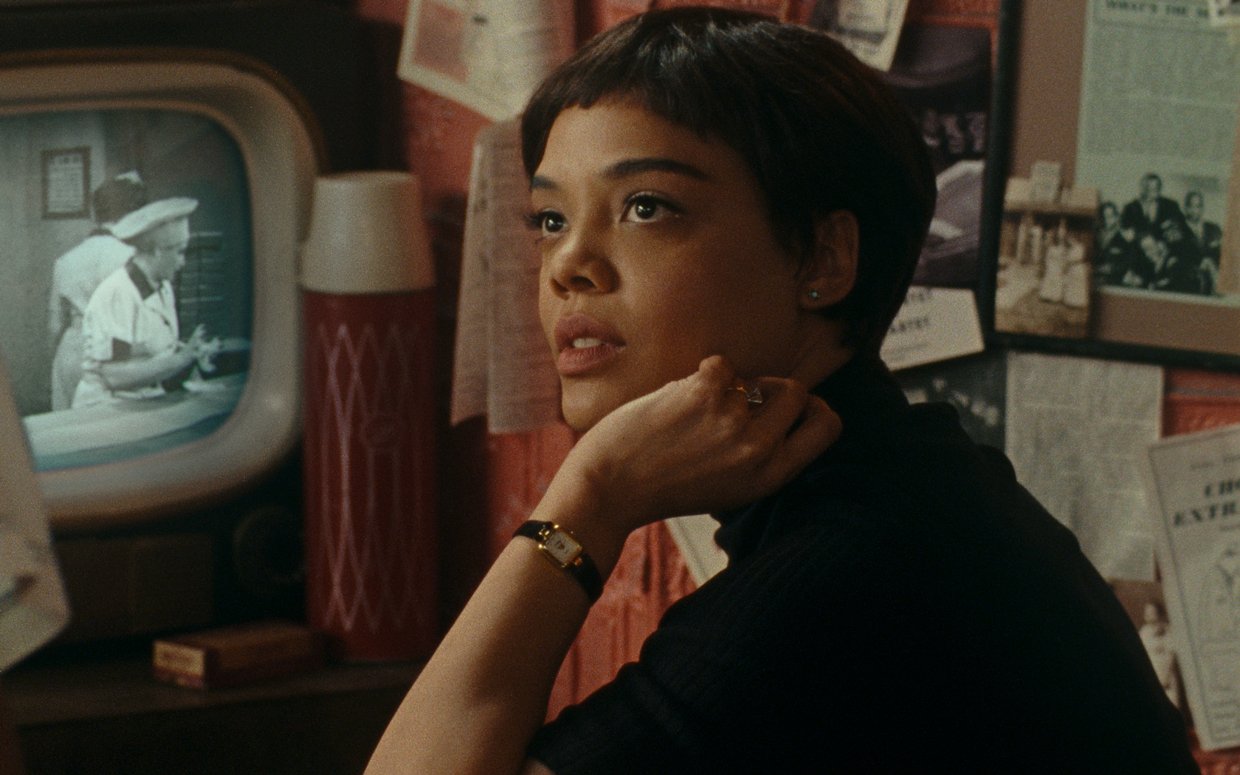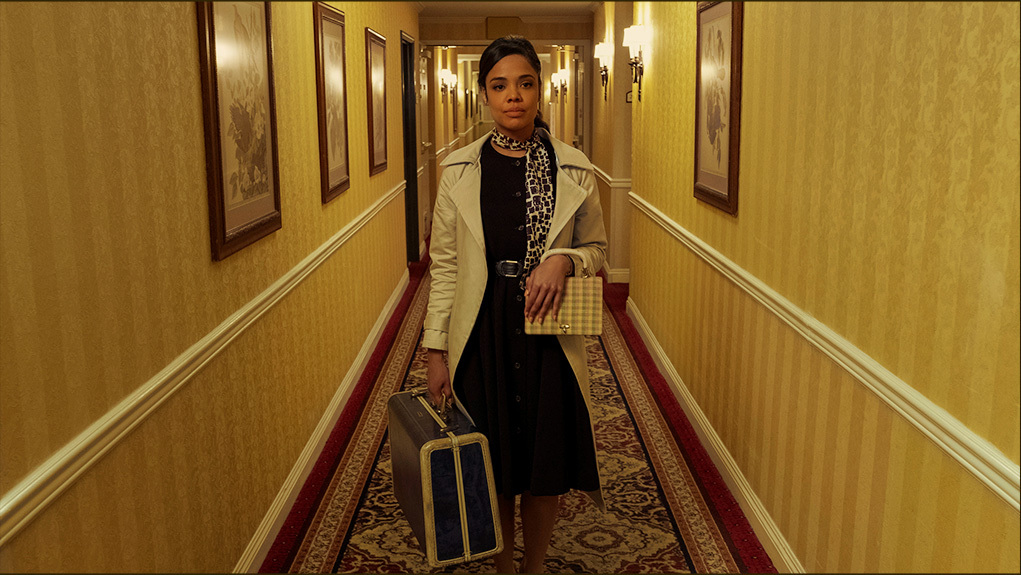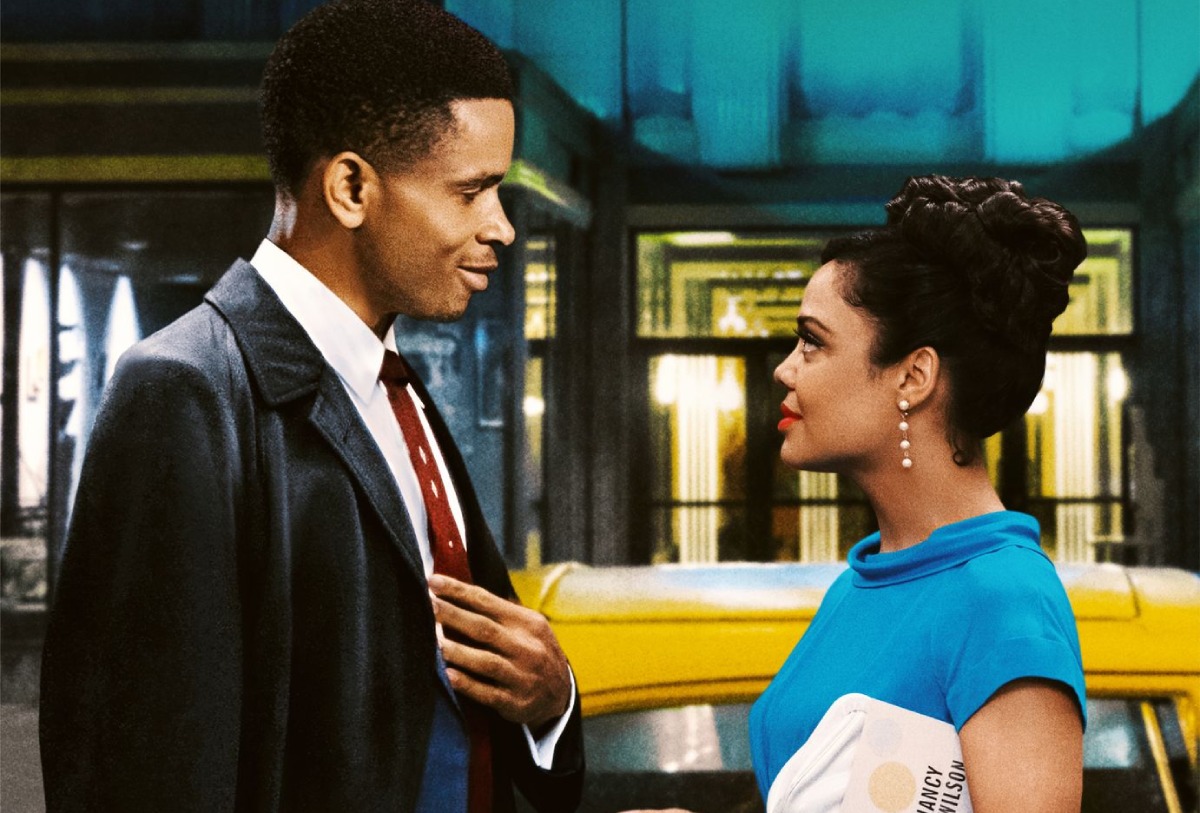In ‘Sylvie’s Love,’ writer-producer-director Eugene Ashe (‘Homecoming’) recreated the beauty and elegance of the romance dramas of the period in which the film is set, from the late 1950s to early 1960s. He took the essence of what makes movies like ‘Breakfast at Tiffany’s’ and ‘That Touch of Mink’ timeless classics and then used it to transform his Harlem love story into something magical and memorable.
“When we talk about the sixties and Black folks, it’s often framed through our adversity,” Ashe said in an interview with The New Yorker. “What I saw growing up was very different.” The filmmaker’s personal experience empowers the beating heart of this remarkable piece of homage and ultimately helps it discover its unique identity. SPOILERS AHEAD.
Sylvie’s Love Plot Synopsis

In 1957’s Harlem, Sylvie Parker (Tessa Thompson) spends time at her father’s record store, listening to music and dreaming of becoming a television producer. One day, gifted saxophonist Robert Halloway (Nnamdi Asomugha) walks into the shop under the pretext of buying the newest offering from Thelonious Monk. His real reason is to get an opportunity to talk to the pretty girl he has seen through the store windows. Robert learns that she is already engaged.
Dismayed but still not fully discouraged, Robert acquires a job at the store, and he and Sylvie start spending more and more time together, bonding over their shared love for music. It begins purely as a platonic relationship, transforming into a summer fling, complete with stolen kisses, dancing under a streetlight, and stargazing from a rooftop. And soon enough, it almost inevitably becomes something profoundly deeper. As it often happens in urban fairy tales like this, the lovers are forced to part ways because their immediate destinies lie elsewhere.
Robert goes to Paris with his band, not knowing that Sylvie is pregnant with their child. After Lacy (Alano Miller), Sylvie’s fiancé, returns from the Korean War, he accepts her as she is. They marry and start raising their daughter together. Five years pass before Robert and Sylvie’s paths cross again. Amidst the flood of emotions and wistful musings, they both realize they have never gotten over each other. Sylvie subsequently makes a drastic decision, choosing to live for herself for the first time.
She picks love over security and passion over comfort. She separates from Lacy and renews her relationship with Robert, later introducing him to their daughter. At this point, the film suddenly pivots. Ashe doesn’t end his movie with a conventional happily ever after. Instead, he forces his protagonists to confront the realities of their time and puts their love through a metaphorical trial by fire. Robert and Sylvie almost failed the test, but it was mostly due to a lack of communication. Their love for each other remains as strong as ever.
Sylvie’s Love Ending: The Sacrifices Made For Love

After Robert discovers that the promises he received of a Motown gig in Detroit were false, he makes a similar sacrifice to what Sylvie made all those years ago when she let him go to Paris without telling him about her pregnancy. She knew that Robert was not only an exceptionally talented saxophonist but also enjoyed playing the instrument. If she told him about her pregnancy, he would likely have declined the Paris offer and embraced his new responsibilities. Because she loved him, Sylvie could not do that to him, not even for herself and their unborn child.
So, when Robert’s turn comes, he pays her back in full. Sylvie has always been interested in television. She now has everything she has ever wanted as a producer of her own TV show. And yet, she is willing to leave it all behind and move to Detroit with him. When he visits her at her work, he sees her in her element for the first time and realizes that she should not have to pay such a steep price for loving him. Up until this point, Sylvie has made all the sacrifices in their relationship.
Aside from not telling him about the pregnancy, she was the one who had to muster the courage to walk out of her marriage. He part ways with her in a painful but simple manner after telling her that he will go to Detroit alone. A furious and heartbroken Sylvie can’t comprehend why he is doing this and even accuses him of infidelity, a charge that Robert immediately denies. It isn’t until later that Sylvie realizes the immenseness of his sacrifice. She learns from Carmen (Eva Longoria) that Robert works at an auto plant in Detroit.
Later, her cousin Mona (Aja Naomi King) helps her see what Robert has done is no different from what she did for him before his Paris trip. Before she travels to Detroit and reunites with Robert, Sylvie asks Mona about her favorite song for this moment. It’s a game that the cousins have played since they were young. Mona’s reply is “The Best Is Yet to Come” by Frank Sinatra. It’s a perfect song that encapsulates the estranged couple’s reunion. As Mona puts it, their love is extraordinary, built on the foundation of mutual sacrifice.
What Is the Significance of the End Credits?

The scenes that appear in the end credits are Ashe’s way of assuring his audience that the two protagonists did end up getting a happily ever after. Sylvie gives Robert her late father’s saxophone, and he eventually starts performing again. She continues to produce her cooking show. Despite being afraid of the ocean all her life, she visits the beach with her family. This ending resonates with a sense of permanence. This time, they are together for good.
Read More: Where Was Sylvie’s Love Filmed?


You must be logged in to post a comment.